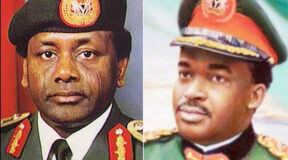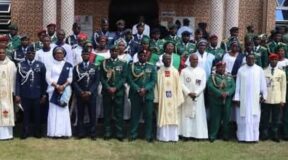Biafra war and the failure
OpenLife Nigeria reports that as the drumbeat of war gets louder in the enclave of Biafra secessionist agitators, a major actor in the Nigerian civil war, Dr Sylvester Ugo, has made added disclosure to why the Biafra war failed.
The Nigerian Civil War was a civil war fought between the government of Nigeria and the Republic of Biafra, a secessionist state which had declared its independence from Nigeria.
The war fought between July 6, 1967, and ended January 15, 1970, was led on the Nigeria side by General Yakubu Gowon, while Biafra was led by Lieutenant Colonel Odumegwu Ojukwu.
Speaking to Osita Benjamin Chidoka, 50, former Corps Marshal and Chief Executive of Federal Road Safety Corps and past Minister of Aviation, Dr. Ugo pointed out that “Emotions” were partly responsible for the Biafra’s failure.
Ugo who served as the Central Bank Governor of the Republic of Biafra also pointed out that “Poor planning and lack of international supports” accounted for the botched mission of Ojukwu.
The 90 years old Harvard-trained economist and running mate to Bashir Tofa in the June 12, 1993, elections maintained that quality education is a way to go for Nigeria’s all-inclusive developments.
He however expressed worries about the challenges facing education in the Northern parts of Nigeria due to banditry and growing violence.
He noted that Nigeria holds a lot of promises and the leadership should focus on educating the people and building a public service anchored on service and not personal enrichment.
The Former Ministers of Education and Science and Technology further narrated how he became the Governor of the Central Bank of Biafra.
According to him, “late Dr Pius Okigbo, returned to Eastern region before the hostilities and started a small group of intellectuals to plan for various scenarios.
“The scenarios included how to manage the economy, currency and regulate Banks in the event of secession.
“The work of that small group formed the initial economic ideas for the new country, and Okigbo recommended him for the Central Bank Job,” he disclosed.
He however explained an interesting story about the difficulties he encountered to get printers for the Biafran currency, a development that partly frustrated the funding of the Biafran operations.
He expressed strong views about the 1966 coup.
According to him, he was in Zaria for a conference when the soldiers struck on January 15 1966. The coup, he noted, damaged Nigeria, in his opinion.
It was unnecessary, he said.







